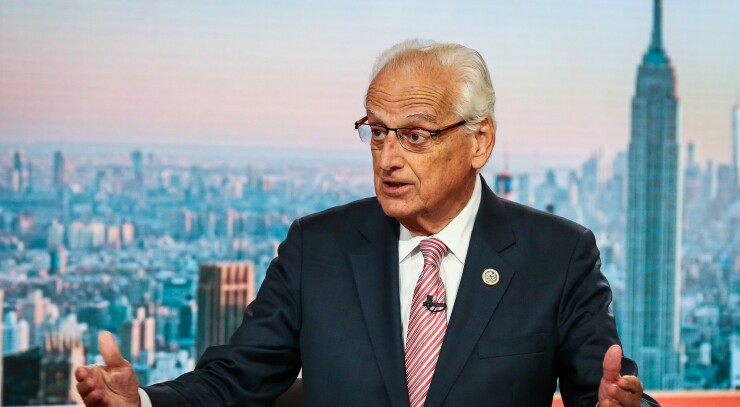IRS grilled over fake charity fraud schemes

The Internal Revenue Service is coming under fire in Congress again, this time for lax oversight of fraudulent charities that applied for tax-exempt status and received approval.
House Ways and Means Oversight Subcommittee chairman Bill Pascrell, D-New Jersey, sent a letter to outgoing IRS Commissioner Chuck Rettig demanding answers to a set of questions prompted by a New York Times article about a scammer who used the same address in Staten Island, New York, to apply for tax-exempt status for 76 fake charities using the names of seemingly legitimate-sounding nonprofits like the American Cancer Society of Michigan and the United Way of Ohio. In most cases, the scammer used the streamlined Form 1023-EZ, which the IRS began allowing organizations to use for applying for tax-exempt status after a scandal erupted in 2013 over slow approval of applications by Tea Party groups and other political organizations, mostly on the right. The so-called “Tea Party targeting scandal” led to the departures of a number of high-ranking IRS officials, including Lois Lerner, director of exempt organizations at the agency.
“I write today with urgency regarding a recent article stat[ing] that a ‘convicted stock market fraudster’ successfully applied for tax exemptions for 76 phony nonprofit charities, many of which used names almost indistinguishable from well-known nonprofits,” Pascrell wrote in a letter Wednesday. “Fifty-six of the approved fraudulent organizations applied using Internal Revenue Service (IRS) Form 1023-EZ, which requires minimal information from applicants. This should never have happened.”

Christopher Goodney/Bloomberg
Pascrell recently demanded that Rettig be fired over another New York Times exposé earlier this month involving the IRS subjecting both former FBI director James Comey and his successor, former acting director Andrew McCabe, to intense tax audits under the IRS’s National Research Program. The audits are supposed to be randomly generated, but both occurred only a few years after both FBI chiefs were fired by former President Donald Trump for their involvement in investigating Russian involvement in the 2016 campaign. Rettig ended up testifying behind closed doors to Pascrell’s committee about the audits, as well as the Senate Finance Committee (see story).
Pascrell pointed out that Form 1023-EZ had been developed to deal with the growing backlog of exempt organization applications during the 2013 IRS scandal, but it seems to have led to fraudulent applications being approved with lax oversight by the IRS. The Taxpayer Advocate Service reported in 2019 that 46% of approved applicants didn’t actually pass the “organizational test” required by statute to establish legitimacy as a charitable organization.
“Once approved, bogus charities scam unwitting donors who trust IRS-certified 501(c)(3) organizations to be properly vetted and legitimate,” said Pascrell. “The IRS has failed these citizens.”
He asked Rettig to respond to a series of questions, including the number of Form 1023-EZ and 1023 applications received each year since 2015, the number approved by the IRS, the number rejected, the number of applications returned asking for additional information that then provided such information, and the number of returned applications that failed to provide such information.
He also asked the IRS to describe the procedures for processing the 1023-EZ forms, including who reviews the application, the average number of hours to review the application, and the number of days, on average, from receipt to the IRS’s determination of tax-exempt status, and what steps are taken when fraud is suspected.
Pascrell also requested more information about the IRS’s current oversight of the tax-exempt organization application process, and what happens when the IRS is notified about concerns by individuals, the media, law enforcement, state tax agencies or other organizations.


